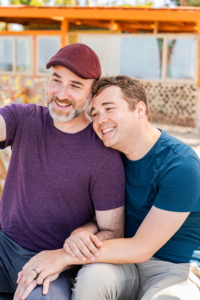Rewilding the High Point
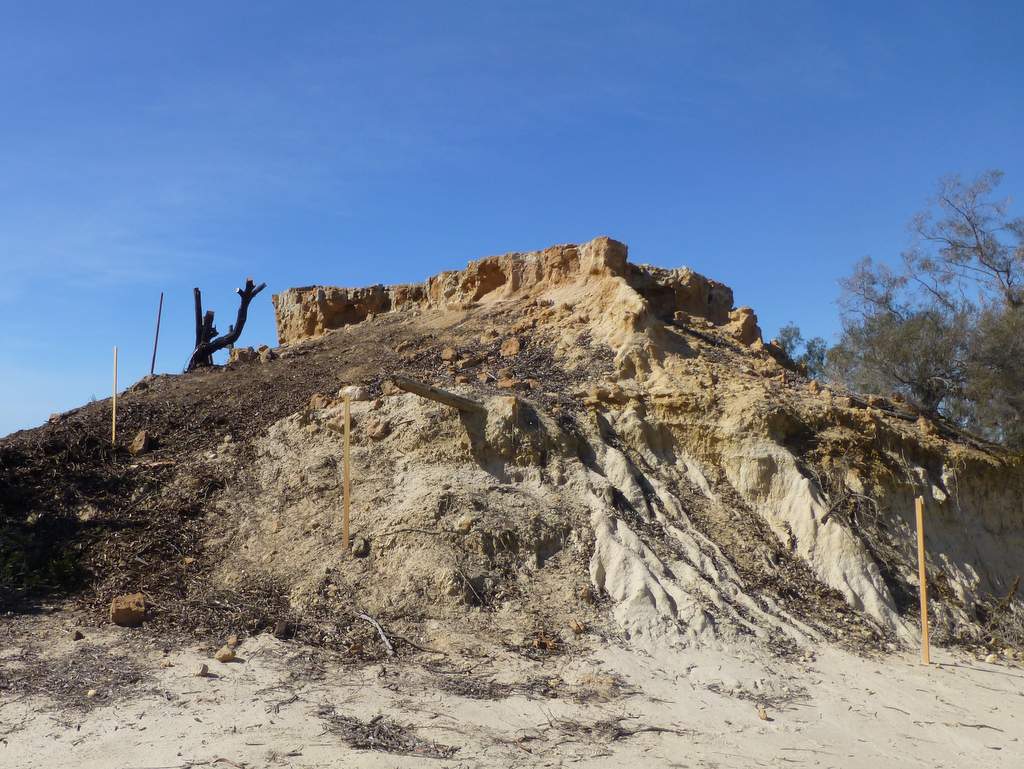
The “High Point,” the highest natural point on the Ranch. Photo taken 2/17/14.
We’ve begun rewilding the “High Point”, the butte that represents the highest natural point on the property.
Rewilding means clearing out invasive and non-native species, and replacing these with native plants.
Native plants have many benefits. One is they attract natural predators, which will provide protection from pests in the adjacent and soon-to-be-built vineyard!
Native plants also attract pollinators, like bees. We want bees to beeeeee happy!
Native plants need very little water. During this drought, we believe that every drop counts.
And best of all, these native plants will provide a forageable and edible landscape. That’s right, you can eat them!
Creating A Natural Sanctuary
Our goal is to turn this natural landscape into a sanctuary, a place for quiet and reflection.
A meandering trail and sitting areas will enhance the sense of tranquility under the shade of native oak trees.
The trail will be mostly constructed with materials found on our property. Decomposed granite will provide a permeable trailbed, so rainwater is collected and not washed away.
We are beginning work on the high point this week, we’ll keep you updated with its progress!
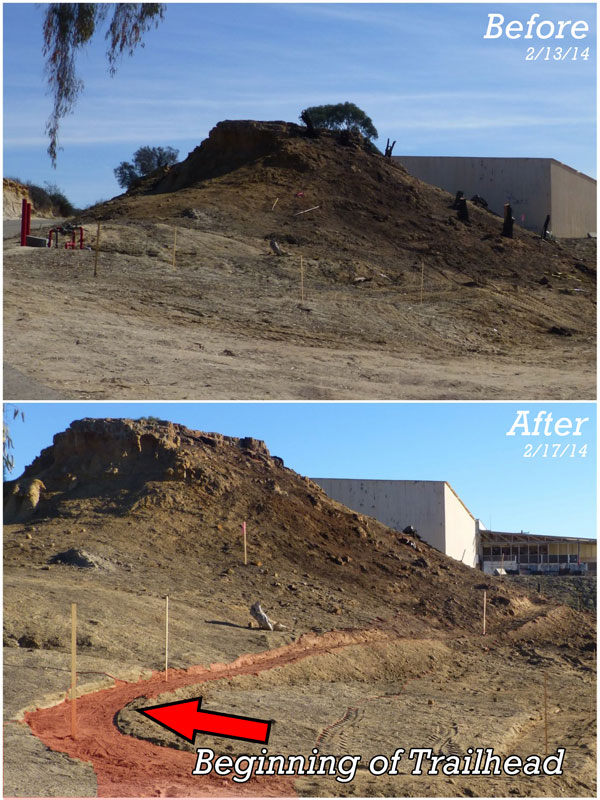
Beginning of trail work at High Point.
Native Plants coming to the Ranch
- ADH – Arctostaphylos ‘Dr. Hurd’ – Tree manzanita
- ADM – Arctostaphylos ‘Del Mar’ – Groundcover Del Mar manzanita
- AG – Arctostaphylos glauca – Bigberry manzanita
- AGC – Arctostaphylos glandulosa crassifolia – Del Mar manzanita
- AHM – Arctostaphylos ‘Howard McMinn’ – Howard McMinn manzanita
- AM – Artemisia ‘Montara’ – Groundcover california sagebrush
- AMB – Arctostaphylos ‘Mama Bear’ – Mama bear manzanita
- AREF – Arctostaphylos refugioensis – Refugio manzanita
- AS – Arctostaphylos ‘Sunset’ – Sunset manzanita
- BPP – Baccharis ‘Pigeon Point’ – Dwarf coyote brush
- CD – Comarostaphylis diversifolia – Summer holly
- CJC – Ceanothus ‘Joyce Coulter’ – Groundcover wild lilac
- CND – Cneoridium dumosum – Bush rue
- Ceanothus ‘Remote Blue’ – Remote blue wild lilac
- CT – Ceanothus tomentosus – Woolly leaf wild lilac
- CV – Ceanothus verrucosus – Warty stem wild lilac
- CWC – Ceanothus ‘Wheeler Canyon’ – Wheeler canyon wild lilac
- DH – Dendromecon harfordii – Island bush poppy
- EA – Eriogonum arborescens – Santa Cruz Island buckwheat
- EPAR – Eriogonum parvifolium – Sea Cliff buckwheat
- HA – Heteromeles arbutifolia – Toyon, California holly berry
- LF – Lyonothamnus floribundus – Catalina ironwood
- LSD – Lonicera subspicata denudata – San Diego honeysuckle
- QA – Quercus agrifolia – Coast live oak
- QD – Quercus dumosa – Scrub oak
- QE – Quercus engelmannii – Engelmann oak
- RI – Rhus integrifolia – Lemonadeberry
- RID – Ribes indecorum – White flowering currant
- SWG – Salvia ‘Winifred Gilman’ – Cleveland sage
- XB – Xyloccocus bicolor
- Mission manzanita

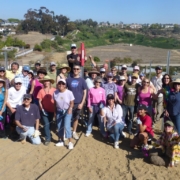
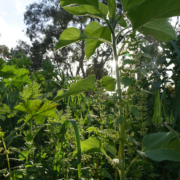
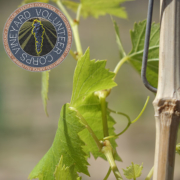

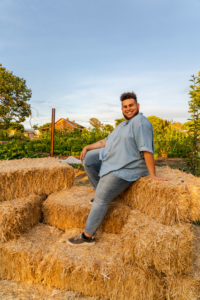 Black, Jewish and Queer. These three identities weave the fabric of who I am, but it took a long time to believe that they could exist together.
Black, Jewish and Queer. These three identities weave the fabric of who I am, but it took a long time to believe that they could exist together.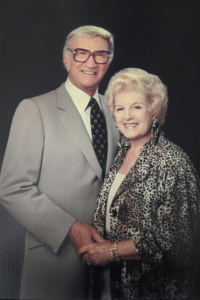 Lee and Toni Leichtag established the Leichtag Foundation in 1991 following the sale of their business. Lee and Toni were lifelong entrepreneurs with a passion for innovation and for supporting talent. They believed that only with big risk comes big reward. Both born to families in poverty, Toni to a single mother, they strongly believed in helping those most in need and most vulnerable in our community. While they supported many causes, their strongest support was for young children and the elderly, two demographics who particularly lack voice in our society.
Lee and Toni Leichtag established the Leichtag Foundation in 1991 following the sale of their business. Lee and Toni were lifelong entrepreneurs with a passion for innovation and for supporting talent. They believed that only with big risk comes big reward. Both born to families in poverty, Toni to a single mother, they strongly believed in helping those most in need and most vulnerable in our community. While they supported many causes, their strongest support was for young children and the elderly, two demographics who particularly lack voice in our society.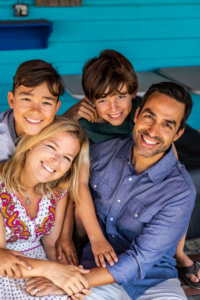 Lifelong Baltimoreans, Rabbi George and Alison Wielechowski and their sons, 11-year-old Lennon and 9-year-old Gideon, are more than pursuing the good life in Southern California. Having moved to San Diego more than three years ago, they are fulfilling a lifelong dream.
Lifelong Baltimoreans, Rabbi George and Alison Wielechowski and their sons, 11-year-old Lennon and 9-year-old Gideon, are more than pursuing the good life in Southern California. Having moved to San Diego more than three years ago, they are fulfilling a lifelong dream.
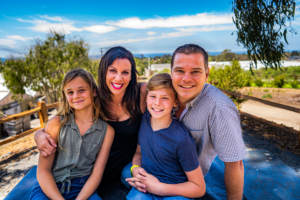
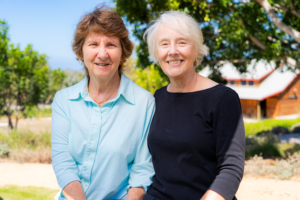

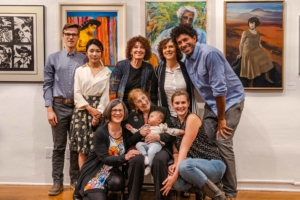
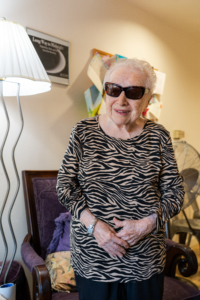
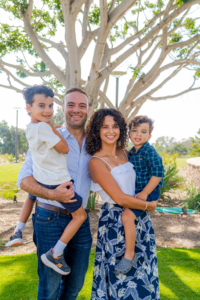
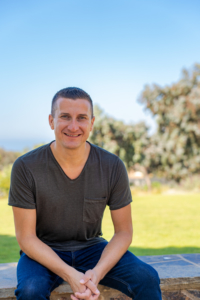 You would think that as the executive director of San Diego LGBT Pride, Fernando Zweifach López Jr., who uses the pronoun they, has done all the coming out they possibly can. A queer, non-binary individual who has worked for many years on civil rights issues, López also speaks openly and often about their father’s family, Mexican-American migrant workers who tilled the fields of rural California.
You would think that as the executive director of San Diego LGBT Pride, Fernando Zweifach López Jr., who uses the pronoun they, has done all the coming out they possibly can. A queer, non-binary individual who has worked for many years on civil rights issues, López also speaks openly and often about their father’s family, Mexican-American migrant workers who tilled the fields of rural California.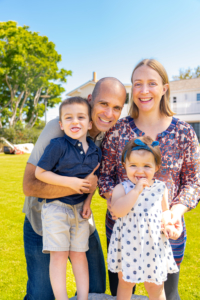 Stacie and Jeff Cook understand commitment. They live it.
Stacie and Jeff Cook understand commitment. They live it.